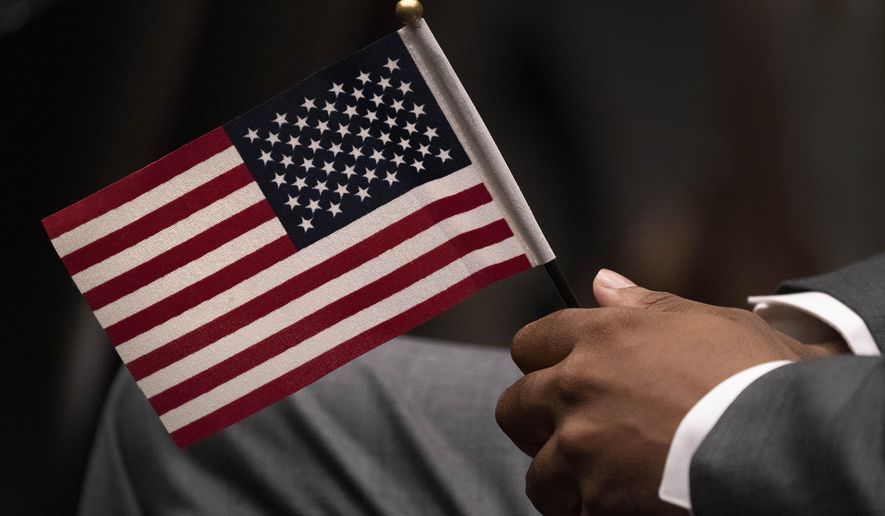OPINION:
Editor’s note: This is one in a series examining the Constitution and Federalist Papers in today’s America.
In October, a girl named Echo was born in California. But neither this new American citizen’s parents mother nor father had ever set foot in the United States. Instead, the newborn was sent home with Auntie Wang, a Chinese nanny hired by an agency called Fat Daddy, to await the arrival of her parents from China.
Echo’s birth was the result of a booming commercial surrogacy industry in California. The state’s laws governing commercial surrogacy are some of the most permissive in the world, attracting wealthy Chinese families who will pay big money to have their children born in the United States — and receive the automatic U.S. citizenship that accompanies their birth. The growing competition between the U.S. and China has only made American citizenship more attractive to many Chinese families, who see it as a “win-win” for their children to have a nationality foothold in each of the two global powers.
For years, Chinese families would do this the old-fashioned way: Mothers would take up residency in the United States to give birth and recover before returning to China with their babies. But in vitro fertilization advances and surrogacy technologies, coupled with China’s strict travel restrictions since COVID-19, have led many families to instead ship their reproductive samples (sperm and egg) to California, where they are implanted into a willing surrogate.
Thus, every year hundreds of new American citizens like Echo come into the world, many without the slightest connection to this country.
Commercial surrogacy is an ethical abomination. The federal government should follow the lead of Louisiana, Michigan, Nebraska, and scores of foreign countries and ban the practice outright. But stories like Echo’s also serve to illustrate the absurdity of birthright citizenship given the geopolitical and technological realities of the 21st century.
The United States is one of the only developed countries in the world to offer birthright citizenship to all comers. It’s far past time to change that.
Fortunately, ending birthright citizenship need not require a constitutional amendment. When the 14th Amendment was adopted, it was meant to protect the citizenship rights of those who were already undeniably American: freed slaves. As a result, the question of foreign allegiance and American jurisdiction was central to the debate over the amendment’s ratification.
The 14th Amendment was never intended to bestow U.S. citizenship on those with foreign allegiance. It was meant to protect American citizenship for Americans who were unjustly denied it. This is why both the 1866 Civil Rights Act (“born in the United States and not subject to any foreign power”) and the 14th Amendment (“born … in the United States and subject to the jurisdiction thereof”) include language specifically excluding those with pre-existing foreign allegiances from birthright citizenship.
The past century and a half of jurisprudence on the question, resulting in the practice of permissive jus soli citizenship, is dubious at best. Perhaps the most famous Supreme Court case on the matter is United States v. Wong Kim Ark (1898). Wong was born in the United States to Chinese parents who were legal permanent residents. Upon his return to the U.S. from a trip to China, Wong was denied entry on the basis that he was not a U.S. citizen. Wong appealed, and the Supreme Court agreed that he was a citizen by virtue of his birth in San Francisco to legal permanent residents.
But even if one grants that the case was properly decided (there are ample reasons to believe it wasn’t), the ruling clearly does not require American citizenship to be granted to children of those not living in the country (surrogacy), on short-term visas (birth tourism) or living in the country illegally. It dealt with the narrow question of citizenship for the children of legal, permanent U.S. residents.
Birthright citizenship makes no sense. It cheapens American citizenship and, in the case of Chinese surrogacy, needlessly entangles this country with our chief geopolitical rival. In short, it harms this country’s actual, existing citizens.
The good news is that this pernicious practice is not required by the Constitution. It’s time for it to end.
• Emile Doak is executive director of the American Ideas Institute, which publishes The American Conservative. He lives in his hometown, Herndon, Virginia.





Please read our comment policy before commenting.